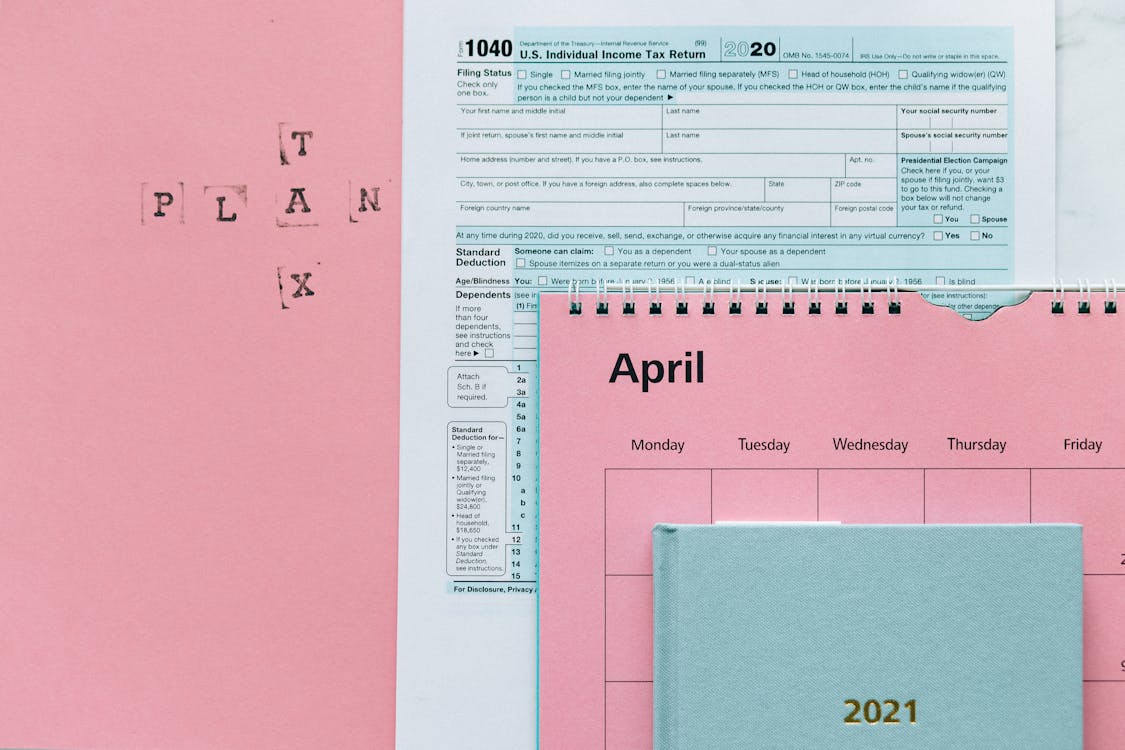Filing your tax return accurately is crucial to avoid potential complications with the Australian Taxation Office (ATO). Mistakes on your tax return can lead to various consequences, ranging from simple corrections to more serious penalties.
In this article, we will explore the potential outcomes of making errors on your tax return in Australia and provide insights into how to rectify these mistakes. Understanding the consequences of such errors is essential for individuals and businesses to ensure compliance with tax regulations and minimize any adverse impact on their financial affairs.

What Happens If You Make A Mistake On Your Tax Return In Australia?
In Australia, if you make a mistake on your tax return, it could have serious implications, depending on how big and how specific the mistake is. Presented here are a few possible results:
Audit and Penalties
- The Australian Taxation Office (ATO) may conduct an audit if they identify discrepancies or errors in your tax return.
- Penalties may be imposed based on the severity of the mistake. This can include fines and interest charges on any outstanding tax amounts.
Overpayment or Underpayment
- Errors can lead to either overpayment or underpayment of taxes. If you have underpaid, you may be required to pay the outstanding amount along with any applicable penalties.
- If you have overpaid, you might be eligible for a refund, but you must correct the mistake to ensure accurate records.
Amendments and Corrections
- If you realize your mistake after filing your tax return, you can submit an amendment to correct the errors.
- The ATO provides avenues for individuals and businesses to rectify mistakes, either online or by contacting them directly.
Interest Charges
- Interest charges may apply to any overdue tax payments resulting from errors on your return.
- It’s crucial to address any discrepancies promptly to minimize the accumulation of interest.
Loss of Deductions or Credits
- Mistakes may lead to the disqualification of certain deductions or tax credits.
- Ensuring accurate reporting helps you maximize legitimate deductions and credits while staying compliant with tax laws.
Legal Consequences
- In cases of deliberate fraud or evasion, legal action may be taken, leading to more severe consequences, including fines and potential imprisonment.
To minimize the risk of making mistakes on your tax return:
- Keep detailed records of your income, expenses, and deductions.
- Double-check all information before submitting your return.
- Seek professional advice from tax experts or use tax preparation software for accuracy.
Quick action is required if an error is discovered after filing. In most cases, the ATO will tell people to fix their mistakes and try to resolve them on their own. Talking to a tax expert or getting in touch with the ATO can give you situation-specific advice if you’re not sure what to do.
What Is In Australian Tax?
The Australian tax system encompasses various types of taxes at both the federal and state/territory levels. Here are some key components of the Australian tax system:
- Income Tax: Individuals and businesses are subject to income tax. Personal income tax rates are progressive, meaning higher incomes are taxed at higher rates. The Australian Taxation Office (ATO) administers income tax.
- Goods and Services Tax (GST): The GST is a value-added tax of 10% on most goods and services transactions in Australia. Businesses are generally required to register for GST if their annual turnover exceeds a certain threshold.
- Capital Gains Tax (CGT): CGT is applied to the capital gain made on the disposal of assets, such as real estate or investments. Certain exemptions and concessions may apply.
- Corporate Tax: Companies in Australia are subject to corporate tax on their profits. The corporate tax rate can vary based on the size and type of business.
- Payroll Tax: Payroll tax is a state/territory-based tax imposed on employers based on their total employee wages. The rates and thresholds vary between jurisdictions.
- Superannuation Contributions Tax: Contributions to superannuation funds are generally taxed at a concessional rate. There are limits on the amount of contributions that can be made each year without incurring additional taxes.
- Fringe Benefits Tax (FBT): FBT is applied to non-cash benefits provided by employers to their employees, such as company cars or housing. Employers are responsible for paying FBT.
- Stamp Duty: Stamp duty is a state/territory tax applied to various transactions, including property transfers, motor vehicle registrations, and insurance policies.
- Customs and Excise Duties: These taxes are imposed on certain goods imported into Australia, including alcohol, tobacco, and fuel.
- Land Tax: Land tax is a state/territory tax levied on the unimproved value of land owned. Exemptions and thresholds vary between jurisdictions.
- Dividend Imputation System: Australia operates a dividend imputation system, where shareholders receive credits for the tax paid by companies on their profits. This aims to avoid double taxation of corporate profits.
Individuals and businesses are encouraged to be updated about updates from the ATO and relevant state/territorial revenue authorities regarding the ever-changing tax rules and rates. To stay in line with the Australian tax system, it’s a good idea to consult with tax specialists or use reliable tax software.
Can I Claim Tax Back In Australia?
You may be eligible for a tax refund in Australia if you have paid more in taxes than what is required of you for the year. When your taxable income is more than your total tax deductions and credits, you may find yourself in this situation.
A tax return could be possible in the following scenarios:
- Work-Related Expenses: You may be able to claim deductions for work-related expenses, such as uniforms, tools, and equipment necessary for your job.
- Education Expenses: If you are studying and incur eligible education-related expenses, you may be able to claim a deduction.
- Donations: Donations to registered charities in Australia are generally tax-deductible.
- Medical Expenses: Certain medical expenses can be claimed as deductions, especially if they exceed a certain threshold.
- Home Office Expenses: If you work from home, you may be able to claim a portion of your household expenses as a deduction.
- Investment-related Deductions: If you have investments, you might be eligible for deductions related to managing your investments.
You must submit an income tax return to get your money back. Do it all online with the help of the Australian Taxation Office’s (ATO) myTax system. Another option is to see a certified public accountant.
You must maintain precise records of your earnings and expenditures all through the fiscal year to back up your assertions. To make sure your taxes are accurate and in line with Australian rules, it’s a good idea to see a tax expert or use tax preparation software if you need help with your return or are unclear about the deductions you can claim.
Conclusion
If you have paid more in taxes than your actual responsibility, you may be eligible to receive a tax refund in Australia. There are several different ways via which you may be able to potentially qualify for a refund.
To increase the likelihood of receiving a refund, it is important to maintain accurate records and have a thorough awareness of the deductions and credits that are eligible for reimbursement. With that being said, it is of the utmost importance to be aware of the ramifications that might result from making mistakes on your tax return. Errors can result in audits, penalties, and other issues.
If you discover inaccuracies in your tax return after it has been submitted, the Australian Taxation Office (ATO) permits revisions through which mistakes can be rectified. You may maintain compliance with tax requirements and correct errors by proactively addressing discrepancies and seeking professional guidance, if necessary.
This will help you avoid any potential problems. Generally speaking, maintaining an awareness of the laws governing taxes, being conscientious in the maintenance of your financial records, and requesting assistance when it is required all contribute to a more streamlined process of filing taxes and lower the possibility of encountering unfortunate outcomes.
Looking for more information? Read this guide ato penalties false information now!
